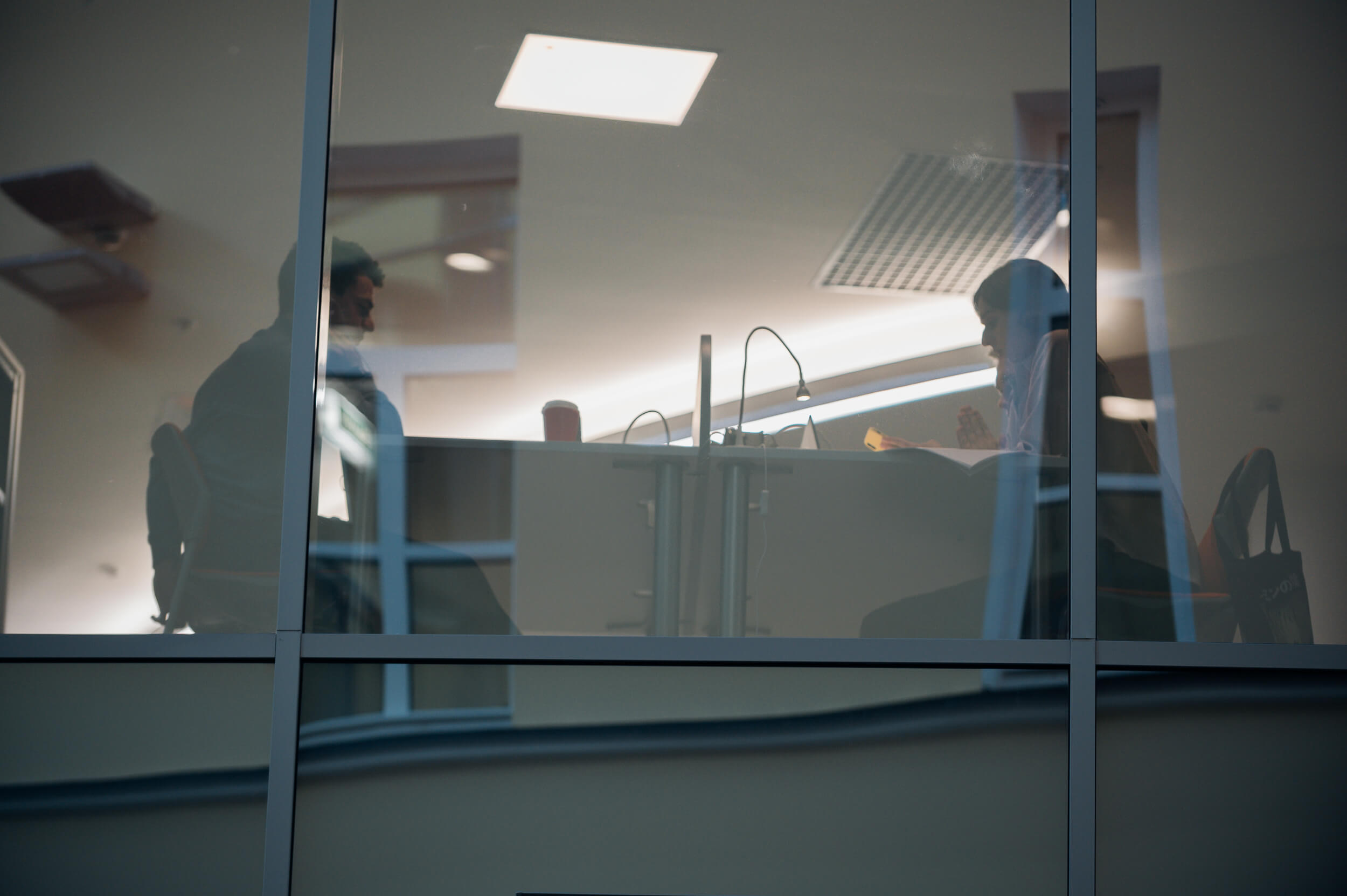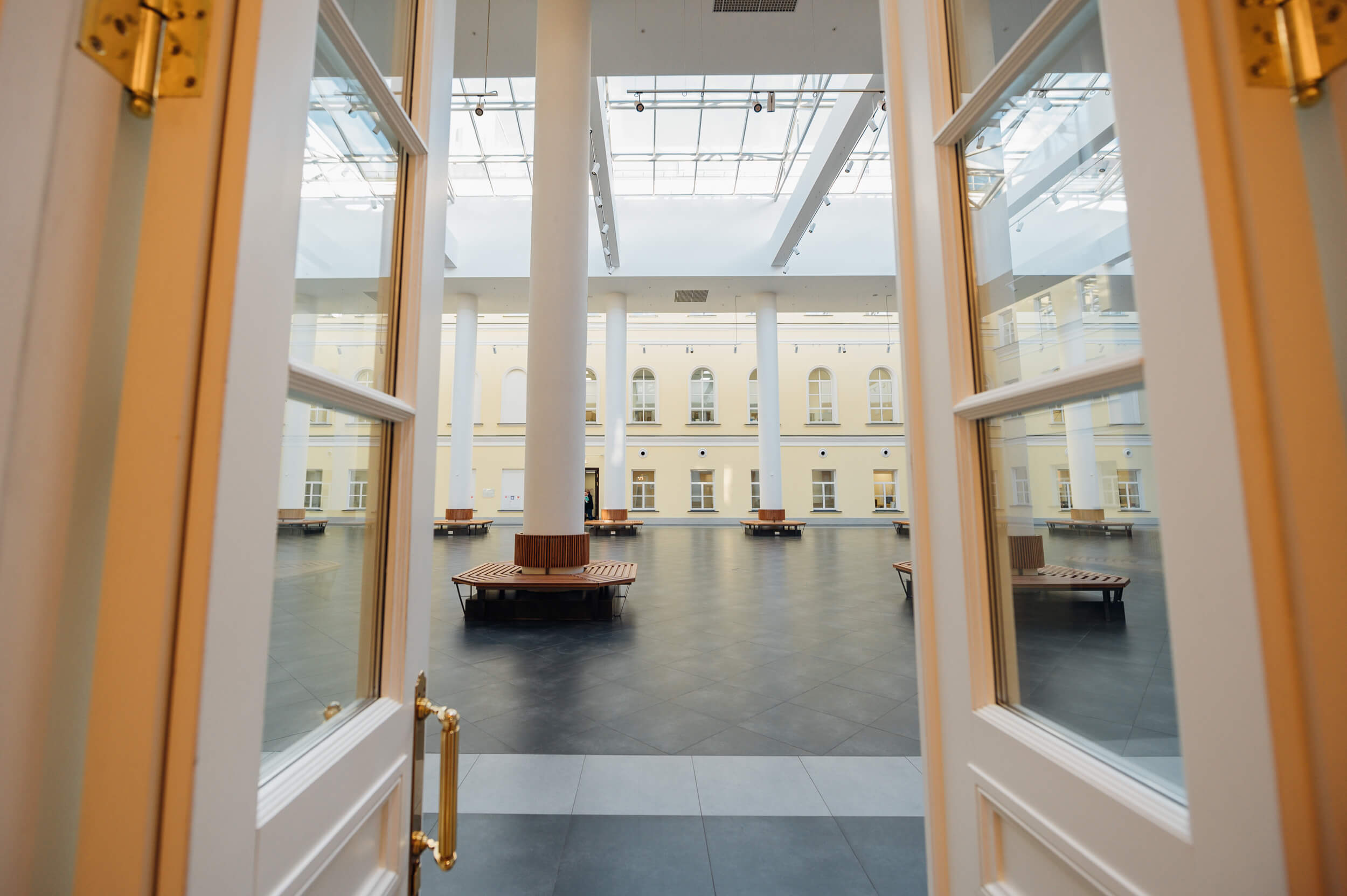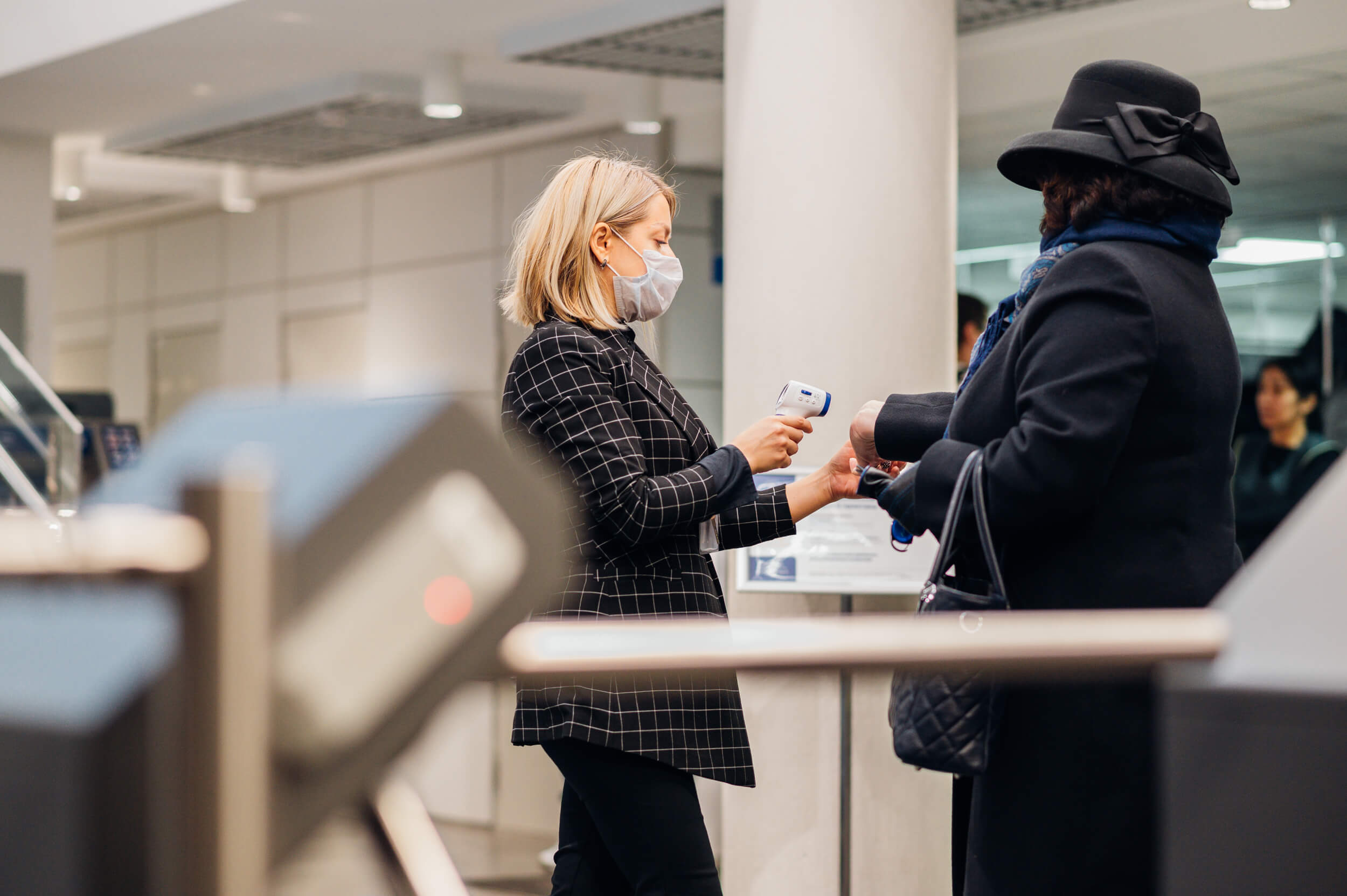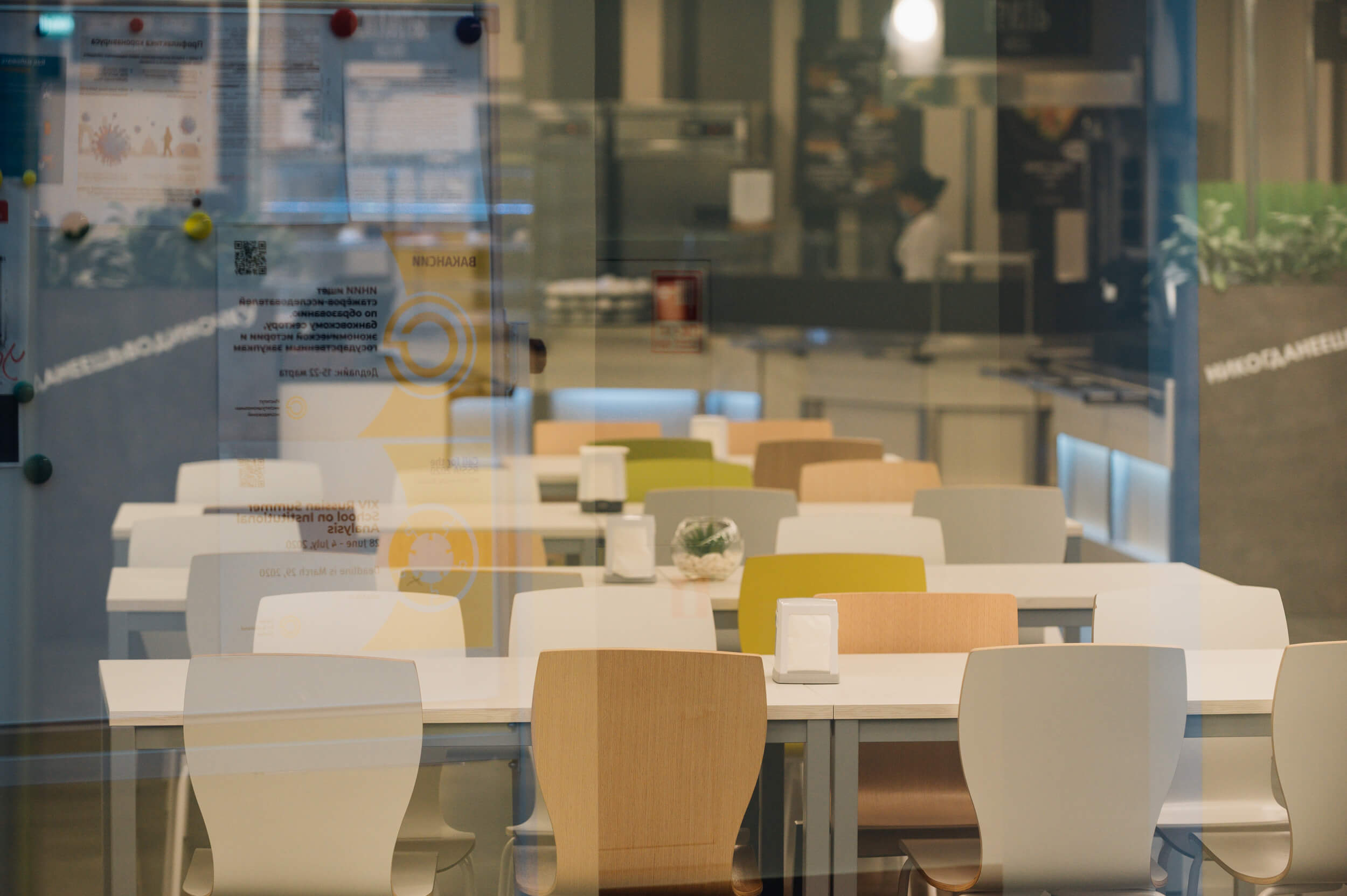- A
- A
- A
- ABC
- ABC
- ABC
- А
- А
- А
- А
- А
'It's Crucial That We Haven't Had Any Viral Outbreaks Even in the Dorms'
© Danill Prokofiev
For almost four months now, the HSE community has been working and studying remotely. Chief of Staff Irina Martusevich, HR Director Elena Molodykh, and Vice Rector Vladimir Samoylenko spoke with HSE University Life about how the pandemic has changed life at the University, what has been done to maintain work operations and prevent the spread of the virus, and when the University can return to normal life.
'We will return to work greater professionals than when we left in March'
Irina Martusevich, Chief of Staff
As we all remember, things happened fast. The first cases of then unknown disease were recorded in China just before the New Year. The virus arrived in Europe on January 24, and a week later it was detected in the Far East.
Even in early March, things in Russia were still very calm. On March 5, the Rector decided to limit university-related travel. At that time, the main threat was the virus entering Russia from abroad, but by the middle of the month it became obvious that the number of cases in Russia was growing exponentially. The Minister of Education and Science Valery Falkov issued a decree that all educational institutions must transition to distance learning by March 17, and this marked the beginning of a new life for us.

Obviously, we weren’t the only ones in this situation—the whole world was. We relied mainly not on experience, but on common sense and our desire to protect our students and staff as much as possible. As the saying goes, ‘Do what you can, and what will be will be.’ We also maintained close contact with the Ministry of Education and Science, the Moscow Government, and colleagues from other universities.
'The feeling that you aren’t alone at a difficult time really helps you stay calm and do your job'
If we’re talking about the epidemic, it was impossible to completely avoid the infections altogether. But it was very important that we did not have any outbreaks even in the dormitories, where, for obvious reasons, it is impossible for students to socially distance effectively. Half of students decided to remain in the dormitories during the lockdown. It was necessary to prevent the spread of the disease there.
In order to maintain normal administrative operations, it is extremely important to ensure an effective workflow. And, although we have an electronic system at HSE, a lot of documents are nonetheless submitted in hard copy, so it was necessary to quickly figure out how to proceed.
Some staff, particularly those in the Accounts, upon whom the payment of salaries and scholarship stipends depends, still had to be physically present at work. This required us to find some clever solutions.

As for staff meetings, holding them on Zoom turned out to be very convenient. I think this will be something we continue in the future. People do not have to waste time on gathering in one place, and many issues can be resolved via chat.
The main difficulties stemmed from the fact that we had to make decisions on the fly in response to the constantly changing situation. Sometimes it was difficult to strike the right balance between allowing for flexibility and not letting things get out of control.
In some cases, unfortunately, we were met with reluctance from people to treat the pandemic as an emergency situation and alter their behavior. It was not easy to convey our position to people and explain why we chose this or that course of action.

There were many grievances that spilled out into the open. Some demanded that tuition fees be reduced, not understanding that the University’s expenses had increased but that the quality of education was being preserved. At the same time, we had to quickly dismantle computer classrooms in order to supply computer equipment to those who needed it.
Students who stayed in the dormitories differed widely in terms of their attitudes to their own and collective safety. It was not easy to make decisions that would affect all HSE community members.
'Personally, it was difficult for me to get used to the suddenly empty halls on campus'
We are continuing to work in close contact with the leadership of the City and the Ministry of Education and Science. As soon as we are able to do so, we will be happy to return to campus. But this difficult period has taught us a lot, so we will return to work greater professionals than when we left in March.
'For us, transferring most of the HR team to remote work was a giant step'
Elena Molodykh, HR Director
On Friday, March 27, there was relatively little chance of it being a regular end-of-the working-week day, but after the president’s address, it became clear that operations would have to continue in a different format. Along with figuring out what was meant by ‘paid non-working days’ and how to apply it to our situation, the HR Office, as well as the rest of all HSE departments whose services are crucial to university operations, had to switch to remote work while observing all the usual personnel formalities.
The first challenge was providing all departments of our management with the necessary technical capabilities for working remotely and, most importantly, continuously. Our colleagues from the IT Office helped us with this a lot.
This is not to say that we were completely unprepared for the transition to remote work: prior to the quarantine measures, we had been actively working on the implementation and optimization of digital personnel services. In particular, employees could access request forms and other documents in the MyHSE Services Account. Moreover, at the end of last year, the execution of all service contracts was transferred online to SDOU. This made things significantly easier during the pandemic.

The HR Office had already adopted a work model by which some employees work onsite while others work from home. All documents are accessible remotely, and we have the capabilities to organize online video conferences as needed for both operational and project work.
Still, transferring most of the HR staff to remote work was a gigantic step. It was not easy to transfer practically all of our operations from the routine, familiar, sequential formats to an electronic one all at once. This process is still only beginning.
''For a unit that works with people in person and with hardcopy documents, this transition was a real challenge'
From the very beginning when the restrictive measures were first implemented, the HR Office worked closely with university employees who had questions regarding work procedures, their paychecks, whether they could work remotely, or, conversely, whether they could continue to work on campus, work-related travel, vacation days, and so on.
I must say that we ourselves did not have answers to many questions at that moment. But we understood our responsibility as well as people’s worries and concerns, so we worked as quickly as possible to find possible solutions and support our employees and reduce their anxiety.
Another challenge was the task of organizing remote work for our team. For this, we used all possible means of communication: daily newsletters, regular meetings to deal with current tasks, and staff meetings for various projects. Keeping in touch with the team and maintaining quick response times, the ability to contact your supervisor at any time to discuss pressing matters, understanding that you are supported—this all helped us immensely in this difficult time.

HR tasks, such as processing employee requests for vacations, transfers, dismissal, or remote work, were all moved online to the MyHSE Services Account and SDOU [electronic document flow system]. All necessary instructions regarding how to submit these documents were made available in the HR section of the system. We managed to bypass a beta testing period and immediate consolidate services for accepting and registering contractual documents, HR documents, and employee requests.
'Looking back, it’s surprising how much was done and redone (more than once to make it better)'
For the entire declared ‘non-working day’ period, most HR staff worked remotely with the exception of select staff who continued to worked onsite: as a rule, HR Office heads and employees of the HR Front Office worked on campus, as their services were particularly crucial.
Today, many services for completing HR procedures online that were introduced during the quarantine period continue to be used in conjunction with procedures that involve hardcopy documents. We intend to further develop and improve our online services and contribute to the development of HSE’s digital infrastructure.

Probably, few can sincerely wish for a repeat of those first, most difficult days of the university-wide transition to online, but we can unequivocally say that, in general, all the tasks assigned to the HR Office were completed, the challenges were met, and the difficulties were overcome.
During the period of remote work, we gained invaluable experience, and electronic HR services received an effective incentive for development. The time that goes into processing employee requests and documents was expectedly reduced due to the online transition. But the most valuable experience for us was our team’s mutual support and solidarity.
'We truly felt the importance and value of each employee of the HR Office and the departments we work with'
Building Operations and Disinfection
Vice Rector Vladimir Samoilenko
The first measures taken to combat the spread of the virus here began in early March, when the university administration ordered all classes to be transferred online. At the same time, measures were taken to reduce the number of people living in the dormitories: students who returned home from campus were exempt from paying the dorm fee.
After the City of Moscow implemented citywide lockdown measures, an order was prepared to restrict the access of teachers and staff to HSE buildings. Only representatives of operating services, the IT Office, a limited number of employees in HR and financial services, and the secretary of the Rector continued to work on campus. Upon entering the buildings, all employees passed through checkpoints where they were subject to temperature checks and given personal protective equipment

After campus buildings were closed for quarantine, cleaning companies disinfected classrooms, offices, and common areas using special substances recommended by Rospotrebnadzor (the Federal Service for Supervision of Consumer Rights Protection and Human Welfare). After that, almost all buildings, with the exception of 20 Myasnitskaya and a number of buildings at 11 Pokrovsky Boulevard, were closed to teachers and staff.
Service staff employees were transferred to a shift schedule designed to minimize the possibility of introducing infection into the buildings. In areas where university staff continued to work, disinfection of shared areas, elevators, and door handles was regularly conducted, and oversight of the cleaning companies’ work was improved.
There were several cases in which HSE employees tested positive for the coronavirus, and we were alerted of this by the authorities. In these cases, we comissioned specialized organizations to desinfect the affected work areas, halls, and common areas.

Three students from the dorm in Saratovskaya street tested positive for COVID-19. Measures were immediately taken to isolate all residents living on the affected floors, and medical workers were summoned to conduct additional tests. Microwaves, water purifying dispensers with hot and cold water, and, for the first time, meals were provided. Dormitory administrators and volunteers helped students stock up on necessary items. Dormitory staff regularly monitored students’ temperatures. In the halls, corridors, and common areas, special bactericidal lamps were installed.
The quarantine period lasted 14 days. Fortunately, there was no further spread of the virus.
Currently, access to university facilities is still restricted. The exams were all conducted online with the use of proctoring software, and students’ summer internships were either postponed or moved online. For students returning to campus from other regions of Russia, a decision was made by the HSE Coronavirus Task Force to institute a two-week quarantine period, during which students must self-isolate at HSE’s complex in Voronovo before returning to their dormitories.

